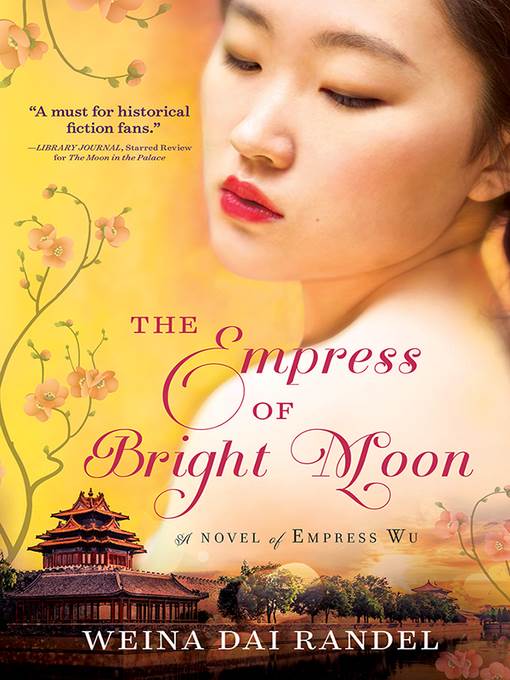
The Empress of Bright Moon
Empress of Bright Moon Duology
کتاب های مرتبط
- اطلاعات
- نقد و بررسی
- دیدگاه کاربران
نقد و بررسی

February 15, 2016
Randel (The Moon in the Palace) offers a rich conclusion to her historical fiction duology about the woman who would become China’s only ruling empress, in this work filled with sorrow and pain. Mei and the other imperial concubines are shocked when, at Emperor Taizong’s death, his brother-in-law, the duke, reveals that the late emperor declared him regent, supplanting his named heir and her beloved lover, Pheasant. The new regent quickly sends all of the former emperor’s concubines from the capital. Mei lives with Buddhist nuns for some years, but eventually sneaks back to Chang’an, where Pheasant discovers her. He sets her up secretly within the imperial compound, and she soon becomes pregnant. Pheasant still has little real power, overshadowed by his uncle, the regent. Both the regent and Pheasant’s wife, the Empress Wang, prove to be relentless and cruel enemies. Readers will know that Mei’s eventual triumph is a foregone conclusion, but she must endure suffering and humiliation before that can come to pass. Randel has done much to breathe life into the life of Empress Wu. Agent: Shannon Hassan, Marsal Lyon Literary Agency.

Starred review from February 15, 2016
This second historical in a duology of the life of Empress Wu (624-705), the only female monarch to rule China in her own name, picks up right after the events of The Moon in the Palace. Mei, having risen through the ranks of the emperor's concubines, stands to lose everything upon his death. The chosen heir, Pheasant, is in love with Mei, yet he is not in control of his own empire. His uncle, the Regent, has quickly moved to secure the power along with Pheasant's wife, Lady Wang, and her supporters. Mei and the other concubines are banished to far-off monasteries. There she will learn the Buddhist teachings that will guide her in the future. Returning to the palace, Mei is once more caught up in a web of intrigue, betrayal, revenge, and murder. Finally finding happiness with her true love, she will come to know the greatest depths of grief before her destiny is fulfilled. VERDICT A must-read for fans of historical fiction set in ancient China, this novel offers a compelling look at a woman's unprecedented rise to power and a fresh take on the often vilified Empress Wu. [See Debut Spotlight Q&A with the author, LJ 1/16.--Ed.]--Catherine Coyne, Mansfield P.L., MA
Copyright 2016 Library Journal, LLC Used with permission.

Starred review from March 1, 2016
Historians have often dealt unkindly with the Tang dynasty's Empress Wu, neglecting to record her strong influence on Chinese culture and prosperity during the seventh century and refusing her the full status accorded male rulers. Randel's two-part historical novel, well researched and filled with the lavish details that bring both the characters and period to life, portrays the empress quite differently. In this sequel to The Moon in the Palace (2016), the young Mei advances from her role as concubine to the dying Emperor Taizong to Luminous Lady and, later, to wife of the heir, Emperor Gaozong, eventually becoming empress in her own right. The author's talent for dramatic, well-timed dialogue, and portrayal of women's friendships and emotionsespecially dislike, jealousy, and fearintensifies the reader's understanding of palace intrigue. Mei's gripping story bristles with hardships suffered at the hands of a scheming regent, the forbidding and dangerous Empress Wang, and peasants incited against her. In all her roles, Mei is the courageous, fiercely determined, and charismatic narrator of her own unforgettable story. A full-immersion, compulsively readable tale that rivals both Anchee Min's Empress Orchid (2004), about the Dowager Empress Cixi, and the multilayered biographical novel Empress (2006), by Sa Shan, which also features Empress Wu.(Reprinted with permission of Booklist, copyright 2016, American Library Association.)

























دیدگاه کاربران